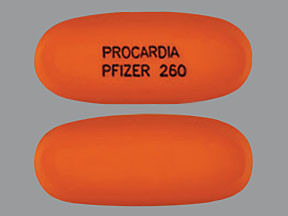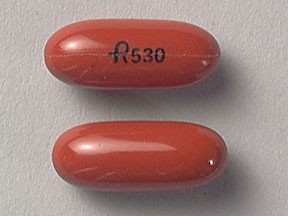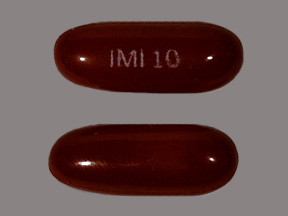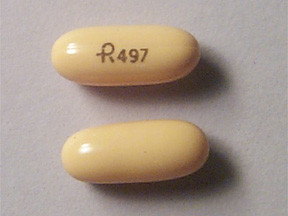NIFEDIPINE - ORAL
PHONETIC PRONUNCIATION: (nye-FED-i-peen)
COMMON BRAND NAME(S): Procardia
GENERIC NAME(S): nifedipine
Uses
USES: This medication is used to prevent certain types of chest pain (angina). It may allow you to exercise more and decrease the frequency of angina attacks. Nifedipine belongs to a class of medications known as calcium channel blockers. It works by relaxing blood vessels so blood can flow more easily. This medication must be taken regularly to be effective. It should not be used to treat attacks of chest pain when they occur. Use other medications (such as sublingual nitroglycerin) to relieve attacks of chest pain as directed by your doctor. Consult your doctor or pharmacist for details. Older adults should discuss the risks and benefits of this medication with their doctor or pharmacist, as well as other possibly safer forms of nifedipine (such as the long-acting tablets).
How to use NIFEDIPINE - ORAL
HOW TO USE: Take this medication by mouth, usually 3 times daily with or without food or as directed by your doctor. Swallow this medication whole. Do not crush, chew, or break the capsule. The dosage is based on your medical condition and response to treatment. Your doctor may gradually increase your dose. Follow your doctor's instructions carefully. Avoid eating grapefruit or drinking grapefruit juice while taking this medication unless your doctor instructs you otherwise. Grapefruit can increase the amount of certain medications in your bloodstream. Consult your doctor or pharmacist for more details. Use this medication regularly to get the most benefit from it. To help you remember, take it at the same times each day. Tell your doctor if your condition worsens (for example, your chest pain worsens or is more frequent).
Side Effects
Precautions
Interactions
Overdose
Images

- color
- orange
- shape
- oblong
- imprint
- PROCARDIA PFIZER 260

- color
- orange
- shape
- oblong
- imprint
- PROCARDIA PFIZER 260

- color
- orange
- shape
- oblong
- imprint
- PROCARDIA PFIZER 260
Reviews
Faq for NIFEDIPINE - ORAL
Nifedipine is used to treat high blood pressure (hypertension) and chest pain (angina).
Nifedipine belongs to a class of medications known as calcium channel blockers. It works by relaxing the blood vessels and reducing the workload on the heart, thereby improving blood flow and reducing blood pressure.
Common side effects of Nifedipine may include headache, dizziness, flushing, swelling in the ankles or feet, and constipation.
It is important to inform your healthcare provider about all the medications you are taking, as Nifedipine may interact with certain drugs such as beta blockers, digoxin, and certain antibiotics. Your doctor will advise you on the safe use of Nifedipine with other medications.
Nifedipine is generally considered safe during pregnancy, but it is essential to consult your doctor before taking any medication while pregnant. They will weigh the potential risks and benefits for your specific situation.
Nifedipine is usually taken orally as directed by your doctor. It is typically taken once or twice daily, with or without food. Follow the instructions provided by your healthcare provider.
It is advisable to avoid consuming grapefruit or grapefruit juice while taking Nifedipine as it may increase the levels of the medication in your blood and lead to potential side effects.
If you miss a dose of Nifedipine, take it as soon as you remember. However, if it is close to the time for your next scheduled dose, skip the missed dose and continue with your regular dosing schedule. Do not double the dose to make up for a missed one.
Nifedipine should not be stopped abruptly without consulting your doctor. Sudden discontinuation of the medication may cause your condition to worsen. Follow your doctor's instructions for discontinuing Nifedipine, if necessary.
Disclaimer
IMPORTANT: HOW TO USE THIS INFORMATION: This is a summary and does NOT have all possible information about this product. This information does not assure that this product is safe, effective, or appropriate for you. This information is not individual medical advice and does not substitute for the advice of your health care professional. Always ask your health care professional for complete information about this product and your specific health needs.




No Reviews Yet